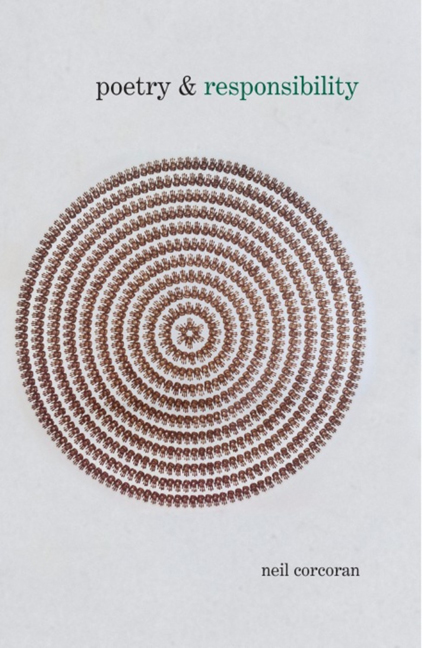Book contents
- Frontmatter
- Dedication
- Contents
- Acknowledgements
- Introduction: The Responsibilities of Poetry
- PART I
- PART II
- PART III
- 9 Everyone and I: Frank O'Hara, Billie Holiday and Modern Elegy
- 10 Poison and Cure: Ted Hughes's Prose
- 11 Back Home: Bob Dylan, Now and Then
- 12 In Retrospect: Christopher Logue, Anne Carson, David Jones
- Notes
- Index
12 - In Retrospect: Christopher Logue, Anne Carson, David Jones
from PART III
- Frontmatter
- Dedication
- Contents
- Acknowledgements
- Introduction: The Responsibilities of Poetry
- PART I
- PART II
- PART III
- 9 Everyone and I: Frank O'Hara, Billie Holiday and Modern Elegy
- 10 Poison and Cure: Ted Hughes's Prose
- 11 Back Home: Bob Dylan, Now and Then
- 12 In Retrospect: Christopher Logue, Anne Carson, David Jones
- Notes
- Index
Summary
Sea of Space: Christopher Logue'sCold Calls: War Music continued(2005)
When Keats first looked into Chapman's Homer, his response was a magnificent sonnet celebrating the power of translation; but despite the word ‘looking’ in his title (‘On First Looking into Chapman's Homer’), which has its eye on reading, the poem also celebrates the power of the oral. Of Homer's original, Keats says, ‘Yet never did I breathe its pure serene / Till I heard Chapman speak out loud and bold’. Keats, that is, absorbs new knowledge and discovers new repose by becoming attuned to an air alive with new sonorities. Keats may mean this literally, since his first experience of Chapman was of reading his version aloud with Cowden Clarke. Pope too, a subsequent illustrious translator of Homer, thought that ‘Homer makes us hearers, and Virgil leaves us readers’. Perhaps all three poets instinctively perceived what some classical scholars have since held about the oral-improvisatory nature of Homer's poems.
Cold Calls was intended, the blurb tells us, as the ‘penultimate’ instalment of Christopher Logue's long-running, intermittently published version of the Iliad, which began with Patroclus in 1962 and whose overall title is War Music. However, since Logue died in December 2011, we should probably assume that this is in fact the ultimate instalment. In a way perhaps encouraged by the tradition of the oral connected with the Iliad, Logue's sequence had its own origin in performance, as a radio broadcast prepared with the classicist Donald Carne-Ross; and War Music has, over the years, consistently offered itself as a performing as well as a printed text. As a consequence, the poem almost always has an ear-grabbing immediacy and urgency, sometimes emphasized, even exaggerated, by typography and layout.
The sequence has had influential admirers and classicist detractors. The former tend to find the latter pedantically incapable of recognizing the actual poetic effort being undertaken, but I am not sure that the issue is so clear. The argument is that Logue is not making a version of the original in any traditionally recognized and sanctioned sense, but offering an ‘account’ of it.
- Type
- Chapter
- Information
- Poetry & Responsibility , pp. 180 - 195Publisher: Liverpool University PressPrint publication year: 2014



